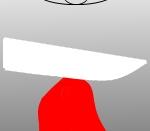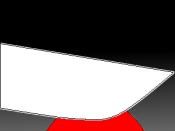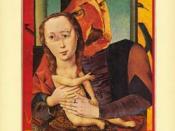Margaret Atwood's controversial dystopian novel, The Handmaid's Tale, leaves the reader with the lingering question of "what if?". Set in the near future, what is known to be the United States, is overtaken by puritan conservative Christians, creating the Republic of Gilead. Assasinating the President and congress, this religious extremist movement suspended the constitution and took complete control over the government. Women in Gilead lost their rights, and served only one purpose; for reproduction. A large population of the women were infertile due to previous constant exposure to pesticides, nuclear waste, and leakages from chemical weapons. They were either labelled "Unwoman" and sent to "Colonies" to clean up toxic wastes, or be house servants; "Marthas". The small number which made up the fertile population were taken to camps where training to become handmaidens for the upper-class people took place. The women of Gilead were denied all basic human rights, and although the main focus of this novel is of what may occur in our future, The Handmaid's Tale is an extension of the patriarchal societies of our past, and of those which are of existence today.
In the Republic of Gilead, the women were stripped entirely of their freedom and identity. Unlike some of the men, they loose the right to work outside the home, or even go out. Their only outing is for daily grocery shopping and mandatory attendance at public events. The women have no say in the choices of daily life, such as what to wear, or eat, who to be friends with, or the choice of sexual partners. Shall one be impregnated, she has no choice of having an abortion, nor the right to claim ownership of the child. The women have no real identities, for what they wore, and where they stood in society, was...


